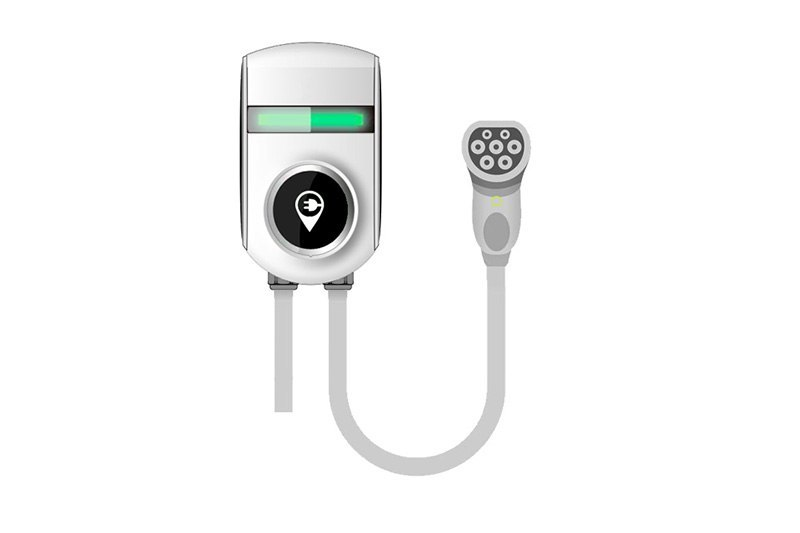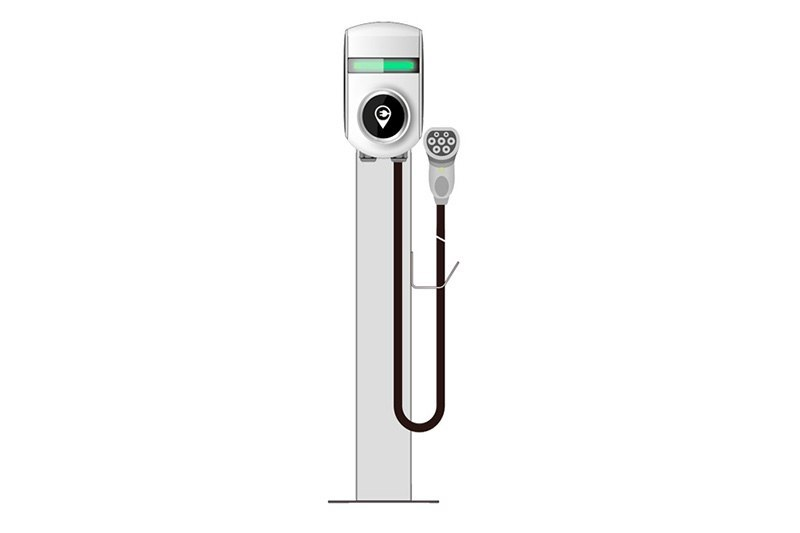What will be the cost of wallbox ev charger in 2022?
WHAT KIND OF ELECTRICAL CONNECTION DOES THE WALL BOX NEED?

A three-phase wallbox ev charger needs a high voltage connection because your electric car can only be fully charged in about 5 hours with 11 kW of power. Single-phase wall boxes do not require a high voltage connection. Since its charging power is only 4.6 kW, it takes much longer to charge.
In principle, the more energy you have, the faster your battery will be charged again.
WHICH WALL BOX DO I NEED FOR MY HOME?
It depends on the electric car you drive, the conditions at home-and what you need: if you just want to charge as quickly as possible at home-or in other words, overnight? Need a smart charging option that can be tracked and controlled through an app?
We offer you the ideal charging solutions as well as the corresponding cables for domestic and industrial sockets. For faster charging, we recommend 11 kW wallbox ev charger which can fully charge your electric car in about 5 hours.
WHO CAN INSTALL A WALLBOX EV CHARGER?
A high voltage connection is always necessary for the installation of a wall box, so this must be carried out by a professional. It can be your trusted electrician, but there are also companies that specialize in charging stations. It’s best to talk to professional company . They can install a Wall box that will be immediately ready for use.
HOW MUCH DOES A HOME CHARGING STATION COST?
It entirely depends on your needs: how quickly do you want to be able to charge your electric car? Will the Wall box be installed so that only the owner has access to it-or can I manage it through an app so that others can also use it? Our Wall boxes, which vary between €754.47 and €1,294.17, cover all situations.
CAN I CHARGE MY ELECTRIC CAR AT HOME WITH WALLBOX EV CHARGER?
Of course you can! The best way to charge your electric car at home is with wallbox ev charger . Even with an energy transfer rate of up to 11 kW, it is much faster than using a household outlet (1.8 kW)-because the latter is not really suitable for providing high electrical power over a long period of time.
It’s like heating a kettle for 10 hours-the contacts, cables and connections are not ready for that.
HOW MUCH DOES IT COST TO CHARGE AN ELECTRIC CAR AT HOME?
When we think of a car plugged into the wall socket for hours, the first question that comes to mind is, “How much will it cost?” Most people tend to think it will be a fortune. But not quite. The cost is lower than you think.

The first point to be highlighted is that residential outlets in Brazil follow the NBR5410 standard, with those three entry points. Any electric car has a socket, just like any other appliance. If there is no compatibility, a simple adapter will solve the problem.
RECOMMENDED WALLBOX EV CHARGER
The recommendation of this standard is that 110 Volt outlets have a minimum of 10 amps and a maximum of 20 amps. The wallbox ev charger 220 Volts have a current of 20 amps. Anyone can be charged and the cost is the same, only the recharge time changes.
For safety requirement of the standard, the network must be grounded. In more modern homes, grounding is already done during construction. If not, the owner must make the conversion to charge the electric car.
The function of that third pin of the socket is precisely due to the grounded network.
Regarding the calculation of the value, it can be done by the owner of the house; it is enough to know how much power the electric network has, measured in Watt (W). For example, a 110V-20A outlet has a maximum power of 2200W.
HOW TO CALCULATE THE COST OF EV CHARGER?
To calculate the cost of wallbox ev charger , the owner only needs to multiply the Watt number by the time the vehicle was plugged in, then arriving at the value in kilowatt-hours (kWh). If the car was running for ten hours, the cost was 22 kWh, in this case.
The price of kWh is determined by ANEEL (National Electric Energy Agency). However, the rate varies from state to state, and the further north, the more expensive it is. The national average is between $0.50 and $0.60.
HOW TO ESTIMATE AVERAGE EV CHARGING COST?
If we use a 220V-20A outlet as an example, the maximum power will be 4,400 W. In the same ten hours, the consumption will be 44 kWh, which would result in a value of $22.
The percentage of charge sent is defined by the time of hours plugged into the outlet and the power of the network. The most common batteries sold range from 40 kWh to 60 kWh and the autonomy with full battery is around 300 km.
HOW MUCH TIME IT TAKES TO CHARGE A VEHICLE?
For a 110V-20A outlet, the time to fully recharge may take more than 24 hours with reliable wallbox ev charger. On 220V-20A outlets, it will always be half; and in 110V-10A outlets, the power is 1,100 W, being three times slower than 220V.
Another factor that influences the collection is the banner tariff, which can be green, yellow and/or red. When it’s green, everything is normal; yellow is an additional charge alert for every 100 kW/h used; the red one has an even higher charge for every 100 kW/h used.
Other alternatives
Any assembler that sells electric cars provides wallbox ev charger, which normally charges 80% of the battery between 6 and 8 hours.
The difference is that these devices must be installed in a three-phase socket, which can withstand a greater power load. Most home networks are single-phase or two-phase, as they do not require as much energy.
Three-phase networks with 20 amps of maximum current are capable of producing an average of 13,200 W. The cost in this case is the same as conventional sockets, as it will deliver more power in a much shorter period of time.
PRICE OF WALLBOX EV CHARGER
The average price of a wallbox ev charger is $ 1251 and requires homework for those who do not have the three-phase network. This will be the additional cost compared to conventional outlets.
Many electric car owners make use of the Solar Photovoltaic System. In it, silicon wafers are installed on the roof — in most cases — and transform the sun’s rays into electrical energy. The electricity generated by the cells is in direct current and can be used immediately.
Summary
The system generates energy for the entire household and has state tax breaks, but each one has its own discretion. Companies that install solar panels promise 50% to 90% savings compared to a traditional electricity bill.

